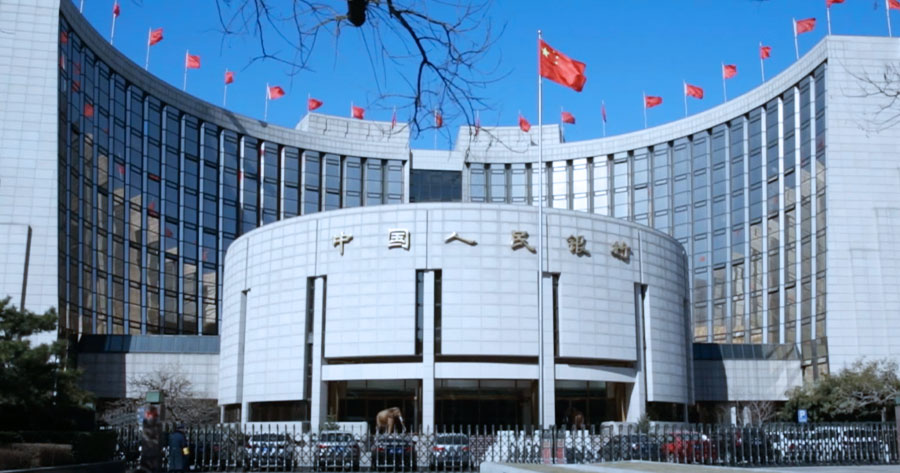China’s central bank announced on Friday its decision to reduce the reserve requirement ratio (RRR) by 50 basis points, marking the second reduction this year aimed at strengthening the weakening economic growth.
The move, scheduled to take effect immediately on Friday, was pre-empted by PBOC Governor Pan Gongsheng during a press briefing on Tuesday. This action, coupled with adjustments in key interest rates and initiatives to support capital markets, seeks to invigorate economic activities amidst persistent deflationary challenges.
The People’s Bank of China (PBOC) specified that the RRR cut would apply to all banks, except those adhering to a 5% reserve ratio.
Emphasizing the commitment to a supportive monetary policy, the PBOC aims to enhance monetary regulation and control, optimize policy precision, and foster a conducive monetary and financial environment to sustain China’s economic stability.
Pan highlighted that this move would potentially release approximately 1 trillion yuan ($142.44 billion) for fresh lending and hinted at the possibility of additional reductions later in the year. However, analysts caution that businesses and consumers remain cautious about accumulating new debts due to the uncertain economic landscape.
Following a previous 50-basis points reduction on February 5, the weighted average RRR for financial institutions settled around 6.6%. Despite these adjustments, recent indicators indicate ongoing struggles within China’s economy, with growth in the second quarter significantly below expectations due to challenges in the property sector and consumer apprehensions regarding job security.
In tandem with the RRR cut, the PBOC also lowered the borrowing cost of its seven-day reverse repurchase agreements by 20 basis points to 1.50%. This decision is intended to fortify counter-cyclical monetary policy adjustments and sustain stable economic growth.
Moreover, official data revealed a sharp decline in China’s industrial profits for August, with a 17.8% plunge compared to the previous year, following a meager 0.5% growth in the first eight months. These concerning figures, alongside a series of discouraging economic reports, have led to global institutions revising down their 2024 China growth predictions, falling below the official target of approximately 5%.
The prevalence of weak domestic demand, exacerbated by job insecurities and deteriorating property sales and investments, is evident in the 40% decline in net profit reported by domestic dairy giant Inner Mongolia Yili Industrial Group Co in the second quarter.





